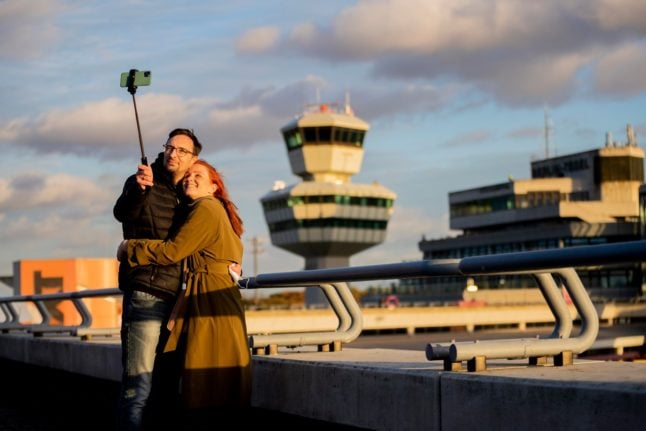That’s when the former airport’s operating permit for takeoffs and landings officially expire, leaving the possibility open to new building plans at the former flight hub in the northwest of the capital.
For half a year, pilots could still switch to Tegel Airport if anything went wrong at the new Berlin Brandenburg (BER) Airport, which opened after nine years of delays on October 31st.
READ ALSO: What you need to know about Berlin’s ‘cursed’ new BER airport
Yet there have been no serious problems at BER so far – especially since the slump in passenger numbers as a result of the Covid crisis has meant that the much-anticipated new airport has not yet been fully put to the test.
Tegel has not had to be used in recent months for flights. Yet it as served as one of six Berlin vaccination centres over the last few months.
“As of May 5th, the site is no longer an airport, even in the legal sense,” announced the operator, the Airport Association of Berlin-Brandenburg (FBB).
On Tuesday, FBB already plans to hand over the first buildings to the state of Berlin.
The last passenger aircraft, an Air France plane bound for Paris, already took off from Tegel on November 8th, and flight operations have been suspended since then.
READ ALSO: Berlin’s Tegel airport closes following last flight to Paris
What’s next for Tegel?
The site and buildings are now to be gradually handed over to the state of Berlin in the months leading up until August. Then the state-owned Tegel Projekt GmbH will take care of the further development of the site.
The Beuth University of Applied Sciences is to move into the iconic main terminal of the former airport.
Tegel Projekt GmbH also plans to build around 5,000 new timber apartments, as well as a technology and industrial park.
READ ALSO: These are the plans for affordable (and sustainable) housing at Berlin’s former Tegel airport
Through an official agreement with the city, however, for 2.5 years the airport association will still be responsible for handling so-called contaminated sites in the area: pollutants in the soil or potential former WWII bombs that must be removed if necessary.
“So far, no need for action has arisen,” FBB announced.
The airport’s iconic retro design that Berliners know today comes from architects Meinhard von Gerkan and Volkwin Marg. Construction began in 1970, and the airport was inaugurated four years later.
Since then, the number of passengers sharply rose each year up until the coronavirus crisis, and reached dimensions that the airport, small by international standards, could not handle anymore.
Of the approximately 36 million passengers in Berlin in 2019, around 24 million travelled via Tegel.
Vocabulary
operations – (der) Betrieb
landings – (die) Landungen
opened – eröffnet
pollutants/contaminants – (die) Schadstoffe
We’re aiming to help our readers improve their German by translating vocabulary from some of our news stories. Did you find this article useful? Let us know.



 Please whitelist us to continue reading.
Please whitelist us to continue reading.
Member comments